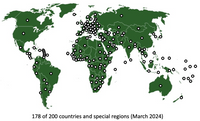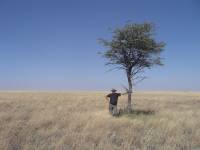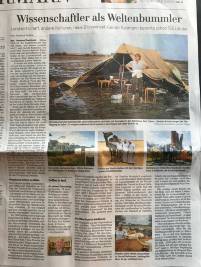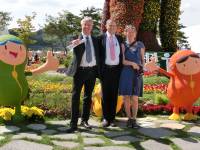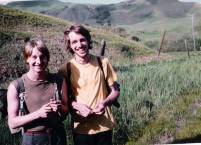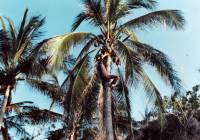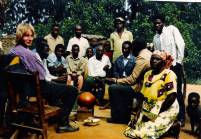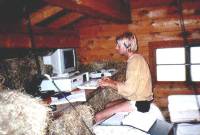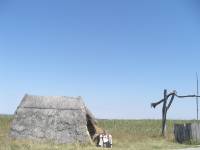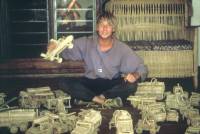GuruGeri, the traveller
Born in 1962 and grown up on a dairy farm in Amerika, a small village close to Friedeburg in East Frisia, North-West of Germany, I had to go to primary school every day via Russia (Russland), the next village.
But seriously, I have visited my first "foreign" country - and crossed a border - with 14 years: 1976 I made a school class tour to East Berlin, in the former German Democratic Republic, East Germany, in the time of the cold war. The black&white TV-country.
With 17 years, I did my first self-organized tour, together with friends to the Netherlands, into a coffee shop in Groningen, 70 km away from my home. Than I became adicted, not for drugs, but for travelling and experiences world wide. After I have seen already so much, worked in so many countries, I was in the need to have a concept around my travels. As farmer and scientist for agriculture, I have decided in 2000, with an age of 38, to visit every country (195 UN incl. plus Vatican, Palestine) and 5 special regions (Westsahara, Greenland, and Antarctica, ???, and East Frisia) and write something about my personal observations and experiences of food and farming. Only one snapshot clear, but rich enough in the global perspective: "Good news and bad news : World of Food and Farming", to be completed this lifelong travel experience in 2028. I am still on the run.
I have experienced in many decades of traveling, that I have to visit some countries very often, some are only once, some countries I have been very long, some very short. All due to many reasons. Many countries, their shape, structure, policies and societies and last but not least even the borders have changed meanwhile. The conditions of 1980s, 1990, 2000 and 2010 are much different compared to 2020. Internet did not exist in the past, the cold war was still existing till 1990, the 9/11 in 2001 in the US has changed the world. on thing is clear: the world is changing, always.
Not only the countries shapes, the socio-economic and agro-ecological conditions have changed, also the way of taking pictures. In the 80s, when I started traveling and shooting pictures, only a 35 mm camera was availabe, pictures are expensive and in need of chemical development, usually done at home back from the tour and surprises, what has been photographed. Some tours I did without making any foto, because it was out of fashion. Today, decades later, I miss these never made photos a lot, because I have forgotten so many details of the tour. Pictures give you a sudden memory of the tours, without, you loose the picutures in your brain as well. In the 2000, small digital cameras became the role to make pictures. But it was not easy to be ready for taking pictures, and only some have been made. Farmers and conditions were not ready that someone came and always took a picture from everything. Than, in the 10s of this century, smart phones became common and you could and did make pictures from everything. Noone was worried about that, everyone did this. Therefore the result of this lifelong journey through the world of food and farming is also a technological and sociological heritage.
Here you find some articles published in the press.
